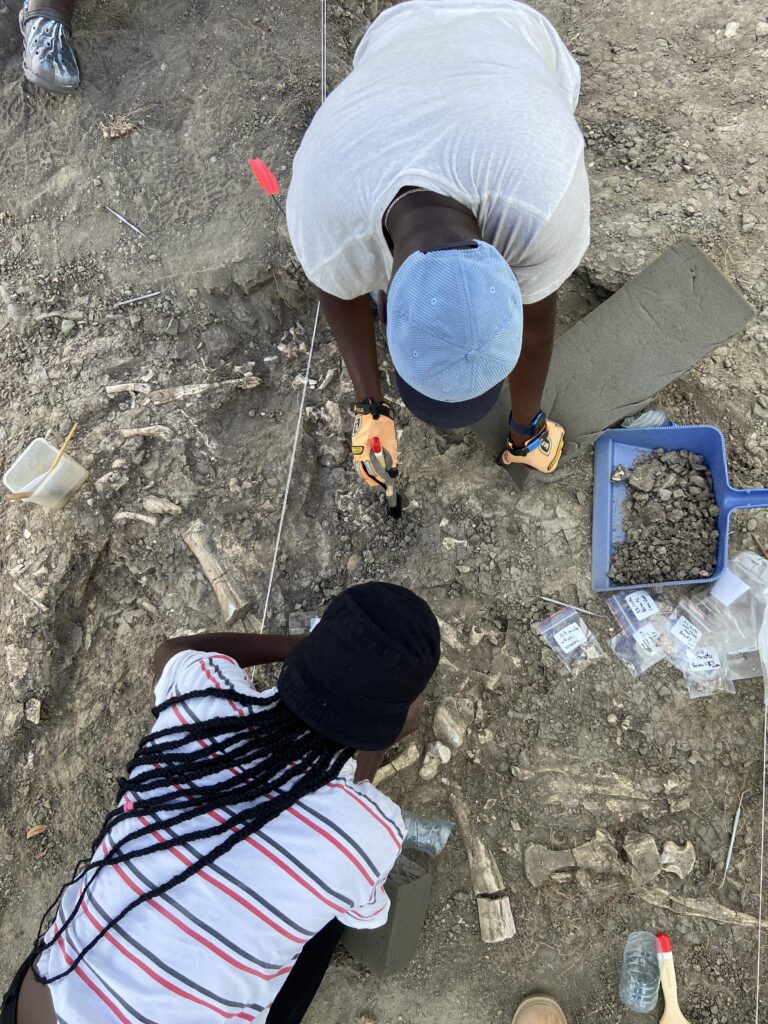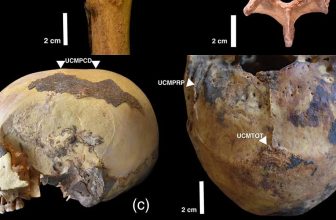
True to the name—ripo means “unite” in the area’s Dholuo language—RIPO’s membership includes people from across Rusinga and several Kenyan and international scientists, including co-authors Kirsten Jenkins and Kieran McNulty, who serve as scientific advisers. Like Siembo, many RIPO members have been involved in excavations on the island or are relatives of former excavators, surveyors searching for fossils, or camp staff. Others are schoolteachers, university students, and community leaders.
All members are united in the goals of educating the local community about Rusinga’s incredible fossil heritage. Among the many anthropological outreach efforts around the world—which are typically led from the top down or by cultural outsiders—this homegrown organization is unique. It is inspiring students to pursue studies in science and ancient history, and shattering myths about local people’s interest in these fields.
SHARING RUSINGA’S ANTHROPOLOGICAL HERITAGE
It’s 2023, and Siembo, alongside Jenkins, is supervising our team of excavators and researchers on Rusinga near the important paleoanthropological Kaswanga primate site, drawing on his nearly two decades of experience as a field crew chief. Time and supplies are running short as our field season nears its close. We debate how to preserve a recently discovered 18-million-year-old bonebed—a dense jumble of crocodiles, anthracotheres (hippo relatives), rhinos, hyaenodonts (predatory mammals), and apes that together paint a picture of a long-gone ecosystem.
Despite the time pressure, we wipe dirt from our faces and change into our nicer clothes. As members of the RIPO team, we are gearing up for a presentation at Wamwanga Primary School, where locals will hear about new discoveries and the enduring legacy of Rusinga’s fossil beds.
In a large classroom, packed to the brim with students and community members, we hear speeches from wazee (wah-ZAY, meaning “elders” in Swahili) emphasizing the importance of community and education, and expressing gratitude for the information shared here today. Together, Siembo and Umoja, and Kenyan and U.S. scientists distill nearly a century of fieldwork on Rusinga. We discuss how our ancient progenitors, such as the ape Ekembo, evaded predators and survived volcanic eruptions and dramatic environmental shifts, persisting for millions of years.







